Indigenous Governance Database
intergovernmental relations
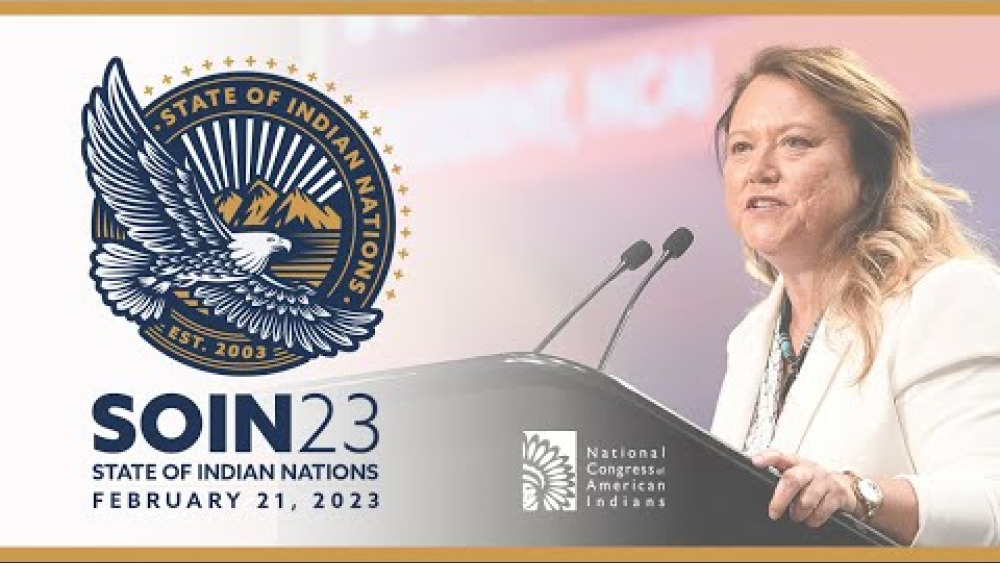
State of Indian Nations 2023 Address (SOIN23)
Each year, the President of the National Congress of American Indians presents the State of Indian Nations address to members of Congress, government officials, tribal leaders and citizens, and the American public. Typically delivered during the week that the President of the United States delivers…
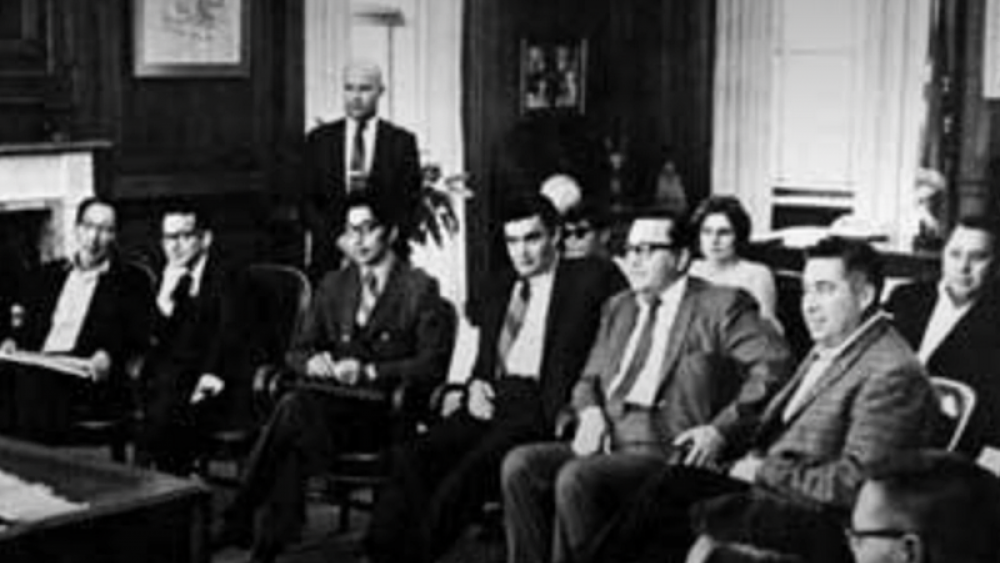
ANCSA at 50: America’s Forgotten Indigenous Rights Movement
Fifty years ago, the Alaska Native Claims Settlement Act passed into law. In one historic piece of legislation, Indigenous Alaskans’ claims to the land were extinguished and a new Indigenous legal landscape was formed. In exchange, Alaska Native communities received title to 44 million acres of…

Investing in Rural Prosperity Chapter 7: Native America x Rural America: Tribal Nations as Key Players in Regional Rural Economies
The seventh chapter in Investing in Rural Prosperity, "Native America x Rural America: Tribal Nations as Key Players in Regional Rural Economies", outlines the diversity of Native nations, including with respect to governmental structure and economic opportunity. It also explores the history and…
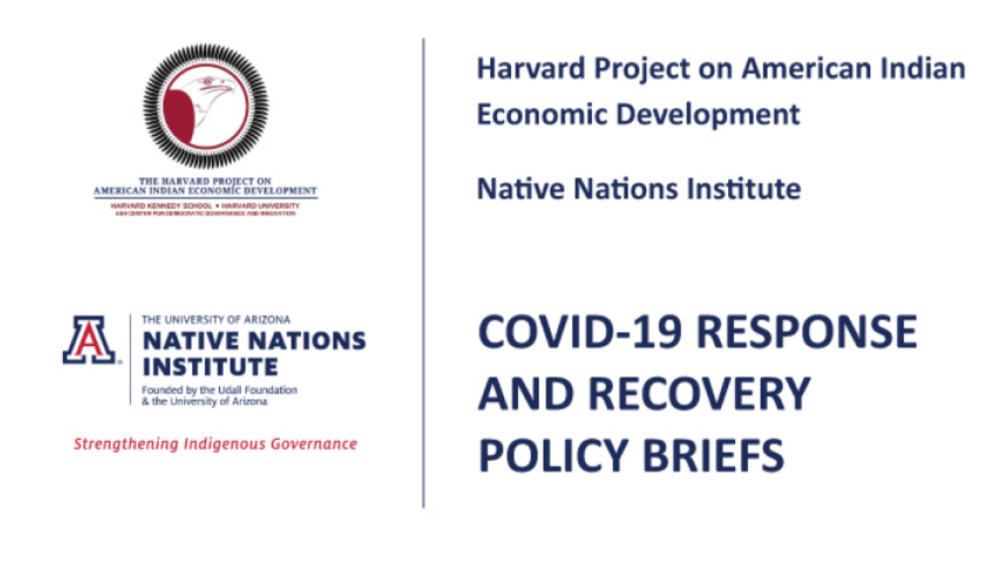
Policy Brief: Assessing the U.S. Treasury Department’s Allocations of Funding for Tribal Governments under the American Rescue Plan Act of 2021
The American Rescue Plan Act of 2021 (“the Act” or “ARPA”) has resulted in the single largest infusion of federal funding for Native America in U.S. history. The core of this funding is $20 billion for the more than 570 federally recognized American Indian and Alaska Native tribal…

COVID-19 and Indigenous Peoples: Impact of and Response to the Pandemic
In a two-volume, special edition of the American Indian Culture and Research Journal—volume 44, issues 2 and 3—we examine COVID-19’s unique implications for Indigenous Peoples, nations, and communities. We organized these special issues because the COVID-19 pandemic has particularly adversely…
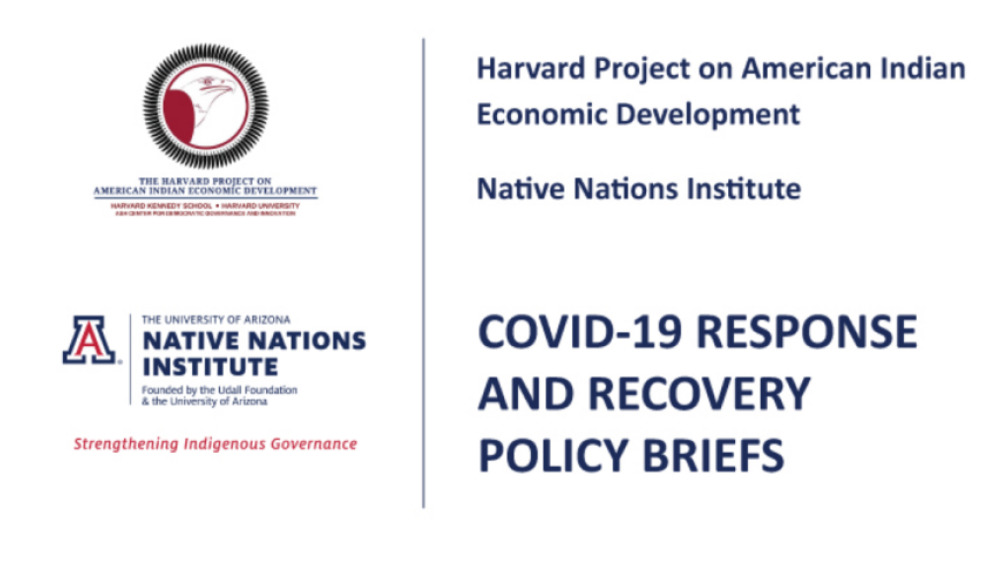
Policy Brief: Recommendations for the Allocation and Administration of American Rescue Plan Act Funding for American Indian Tribal Governments
The American Rescue Plan Act (ARPA) provides the largest infusion of federal funding for Indian Country in the history of the United States. More than $32 billion dollars is directed toward assisting American Indian nations and communities as they work to end and recover from the devastating…
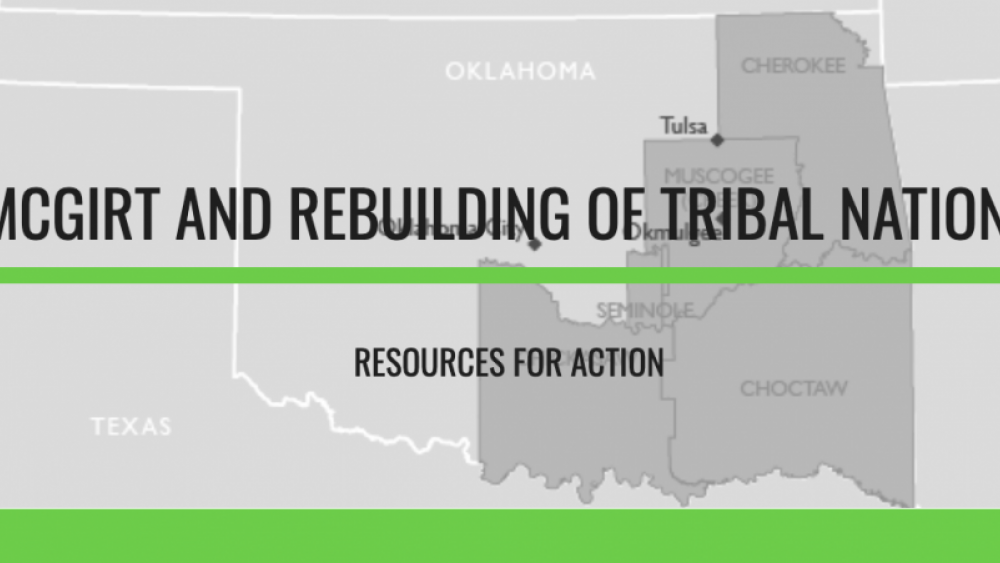
McGirt and Rebuilding Tribal Nations Toolbox
The McGirt decision has changed the legal landscape and created new opportunities for tribal nations starting with the Five Tribes in Eastern Oklahoma and potentially for tribal nations across Indian Country. It also has been the source of confusion, hyperbole, and alarm among some commentators.…
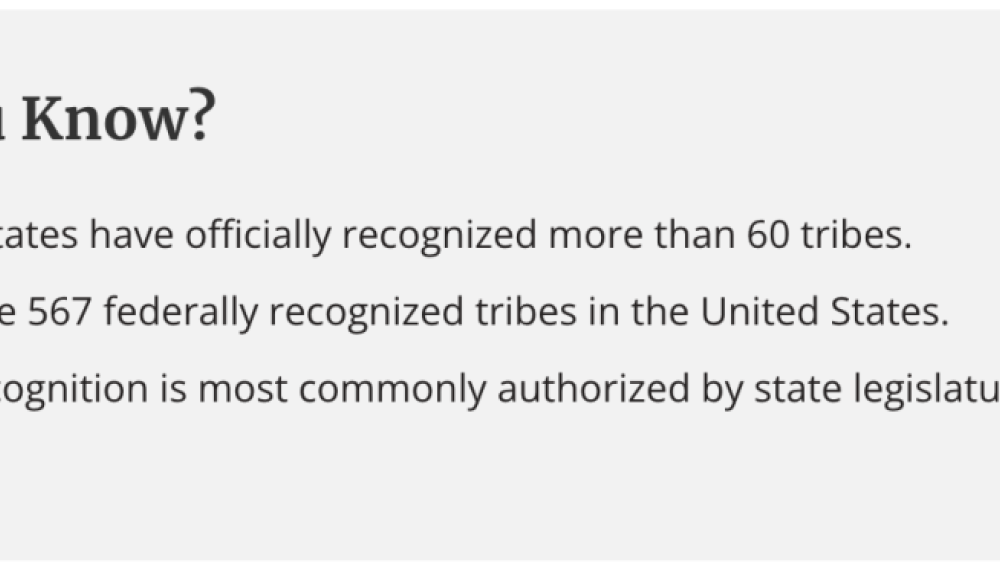
State Recognition of American Indian Tribes
State-tribal relations have a long and complex history in the United States. States’ government- to-government relationships with tribes continue to evolve, taking many forms, including formal recognition. Usually accomplished through legislative action, state recognition of American Indian tribes…
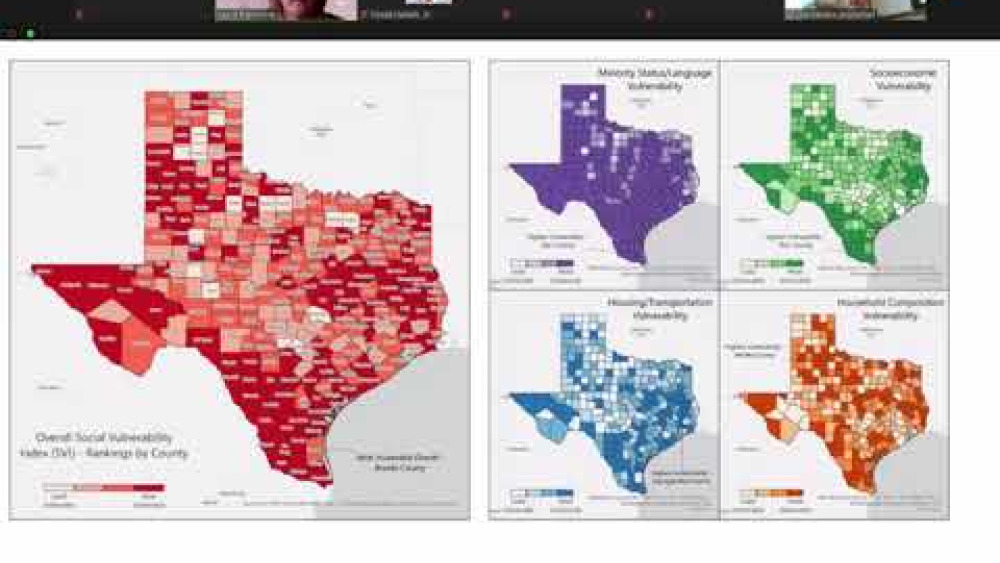
FEMA's Interagency Recovery Coordination Speakers Series: "Equity, The Foundation of Resilience"
Produced and hosted by FEMA, this 6-part Speaker Series is organized around the theme ‘Equity, Resilience in Recovery’. The goal of the Speaker Series is to bring people together to exchange information, inspire one another, and generate discussion on equitable strategies that build strong…
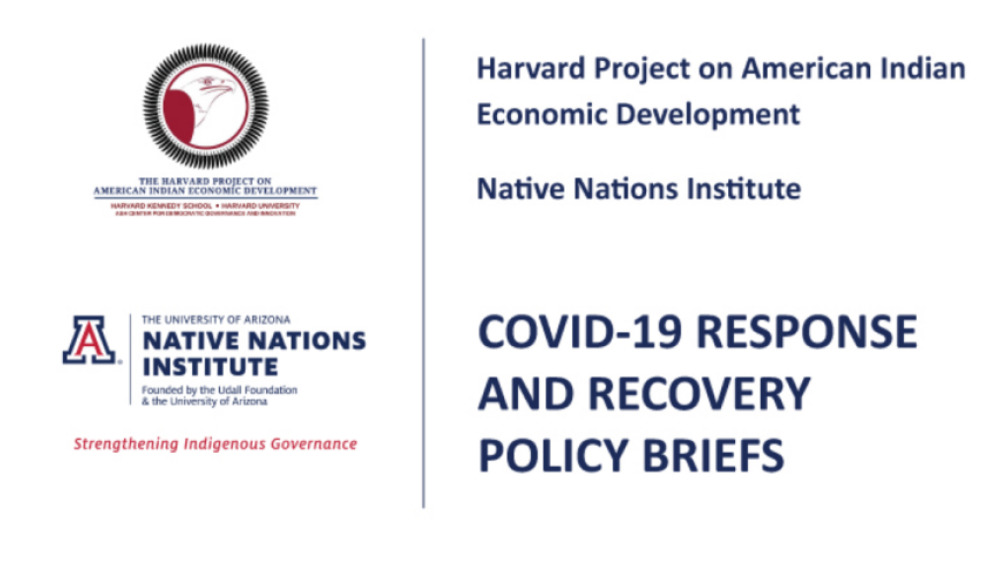
Policy Brief: Federal COVID‐19 Response Funding for Tribal Governments: Lessons from the CARES Act
The federal response to the COVID‐19 pandemic has played out in varied ways over the past several months. For Native nations, the CARES Act (i.e., the Coronavirus Aid, Relief, and Economic Security Act) has been the most prominent component of this response to date. Title V of the Act earmarked $8…
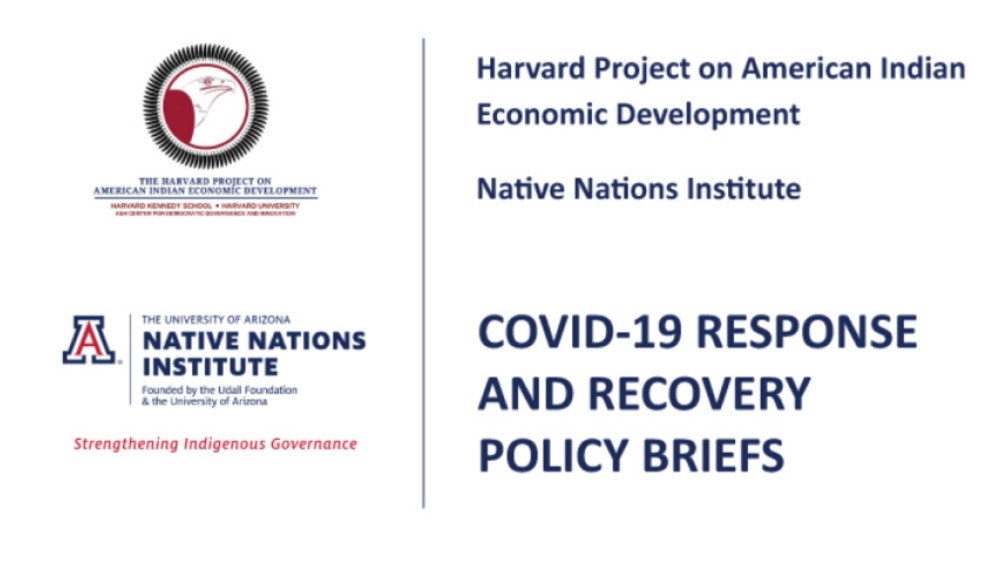
Policy Brief: Emerging Stronger than Before: Guidelines for the Federal Role in American Indian and Alaska Native Tribes’ Recovery from the COVID‐19 Pandemic
The COVID‐19 pandemic has wrought havoc in Indian Country. While the American people as a whole have borne extreme pain and suffering, and the transition back to “normal” will be drawn out and difficult, the First Peoples of America arguably have suffered the most severe and most negative…
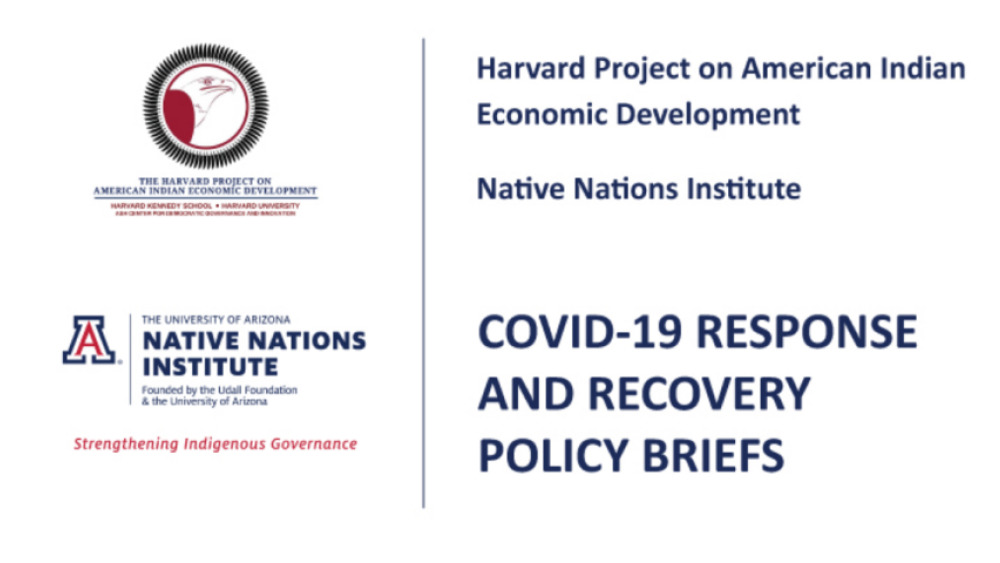
Policy Brief: Proposal for a Fair and Feasible Formula for the Allocation of CARES Act COVID‐19 Relief Funds to American Indian and Alaska Native Tribal Governments
Title V of the CARES Act requires that the Act’s funds earmarked for tribal governments be released immediately and that they be used for actions taken to respond to the COVID‐19 pandemic. These may include costs incurred by tribal governments to respond directly to the crisis, such as medical or…
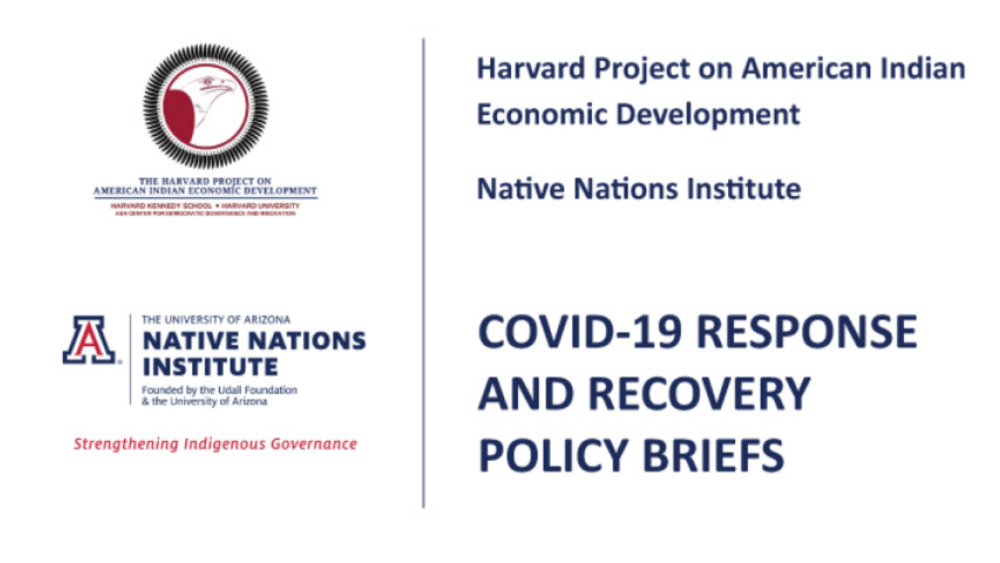
Policy Brief: Dissecting the US Treasury Department’s Round 1 Allocations of CARES Act COVID‐19 Relief Funding for Tribal Governments
In a joint statement, Treasury Secretary Mnuchin and Interior Secretary Bernhardt detailed the amount of CARES Act Title V funds that would be released for federally recognized American Indian tribes starting on May 5, 2010. They noted that the US Treasury Department would “distribute 60 percent of…
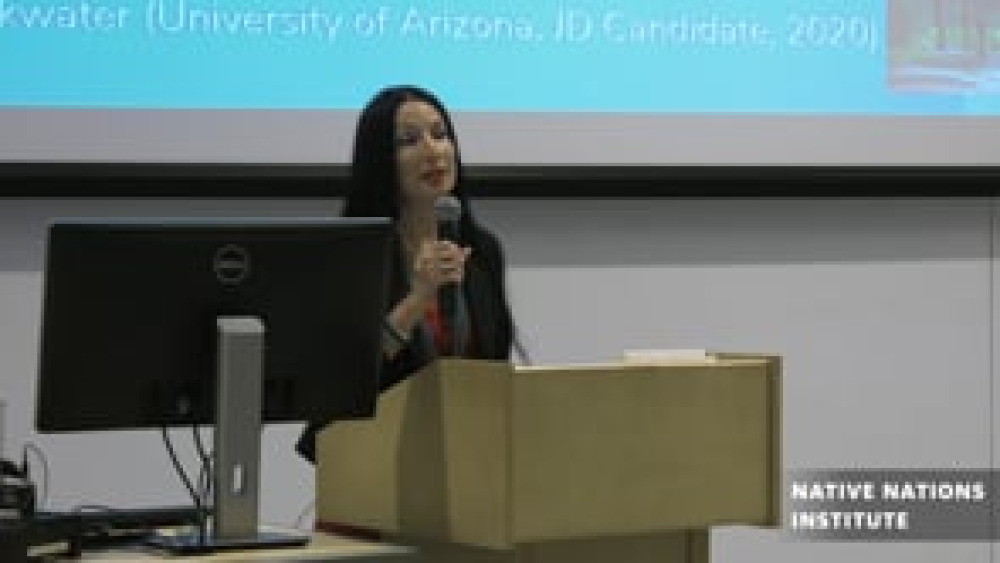
Rebecca Tsosie: Indigenous Sustainability and Resilience to Climate Extremes
The School of Geography & Development presented the “My Arizona” Lecture of Prof. Rebecca Tsosie, Regents Professor of Law at Univeristy of Arizona on Friday, November 1, 2019. Her lecture, "Indigenous Sustainability and Resilience to Climate Extremes: Traditional…

Becoming Visible: A Landscape Analysis of State Efforts to Provide Native American Education for All
Native Americans are unfortunately invisible to many. Most Americans likely have attended or currently attend a school where information about Native Americans is either completely absent from the classroom or relegated to brief mentions, negative information, or inaccurate stereotypes. This…
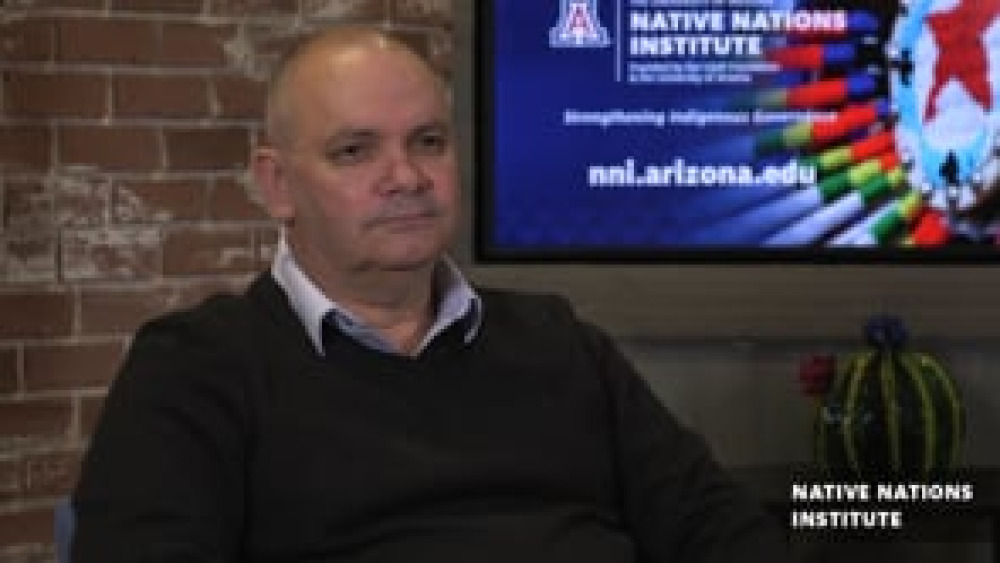
Daryle Rigney: Asserting Cultural Match and Native Nation Building in Australia
Daryle Rigney brings his expertise and first-hand experiences as a citizen of Ngarrindjeri Nation in South Australian to share his thoughts about Native Nation Building for the Ngarrindjeri Nation. He is a Professor of Indigenous Strategy and Engagement at College of Humanities Arts and…
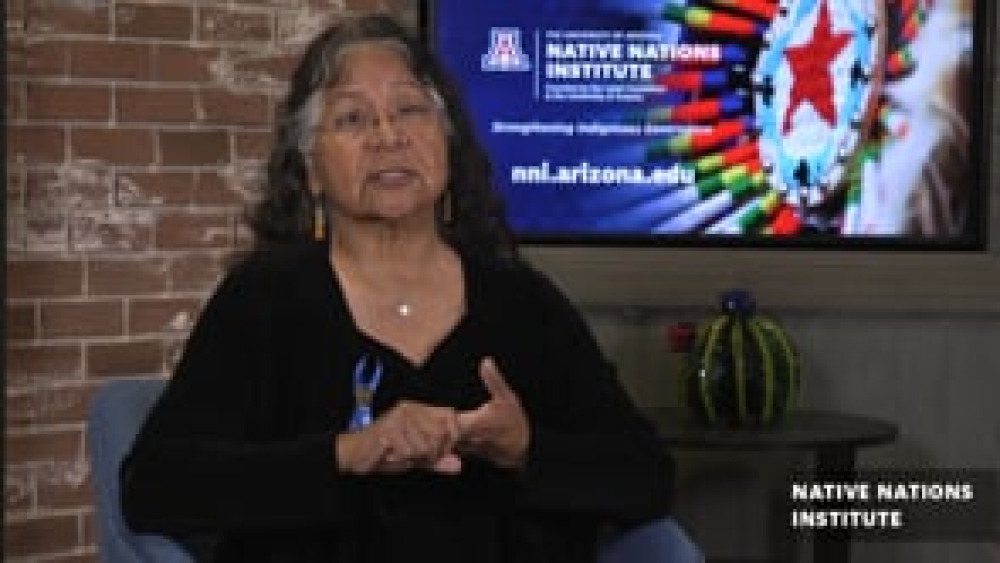
Diane Enos: Endurance through Native Leadership
Diane Enos is an Attorney, Councilwoman & Former President of Salt River Pima-Maricopa Indian Community. She has also served as Vice President of the Inter-Tribal Council of Arizona, Chairwoman of the Arizona Indian Gaming Association, and as a Western Area Delegate to the Tribal Justice…
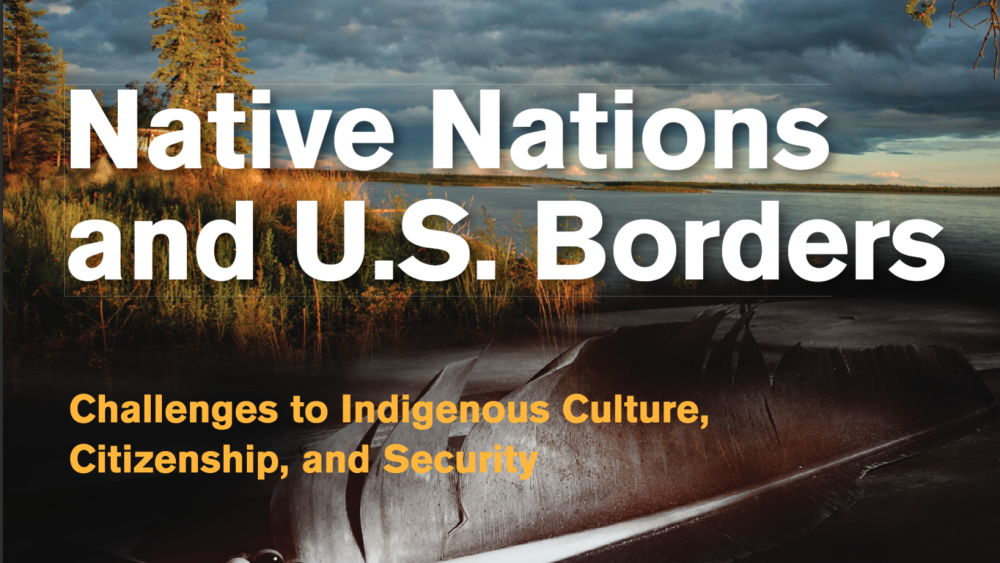
Native Nations and U.S. Borders: Challenges to Indigenous Culture, Citizenship, and Security
A comprehensive review of Native nations along or near the U.S. borders with Mexico, Canada, and Russia response to border-related challenges to citizenship, crossing rights and border security, culture, the environment and natural resources, and public health and safety. This book seeks to inform…
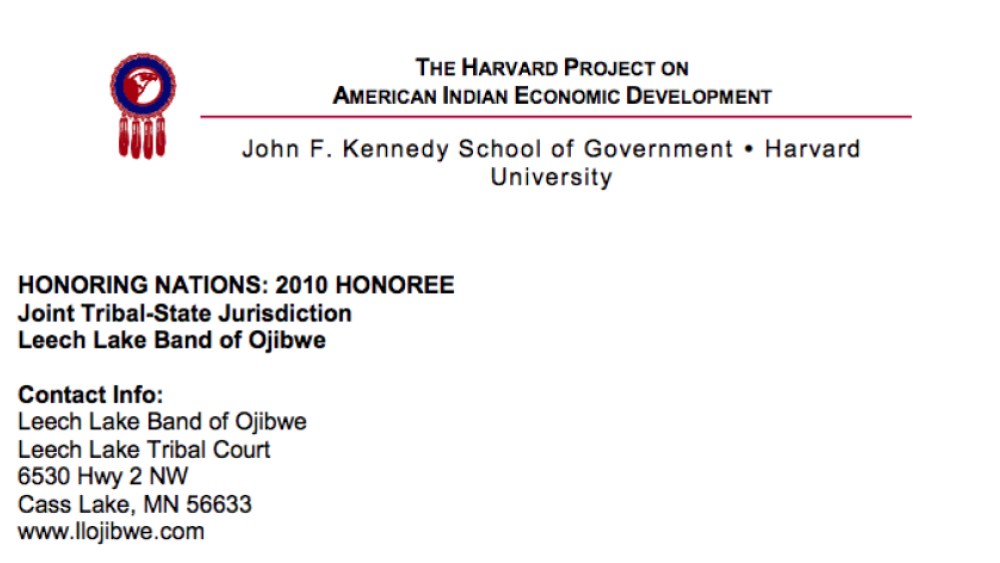
Leech Lake Joint Tribal-State Jurisdiction
Across Indian Country tribes are strengthening and better defining their governments in order to meet the unique needs of their communities. As Native nations work to expand their sovereign powers, tribal justice departments can play a critical role in achieving those goals. In the early 2000s, the…
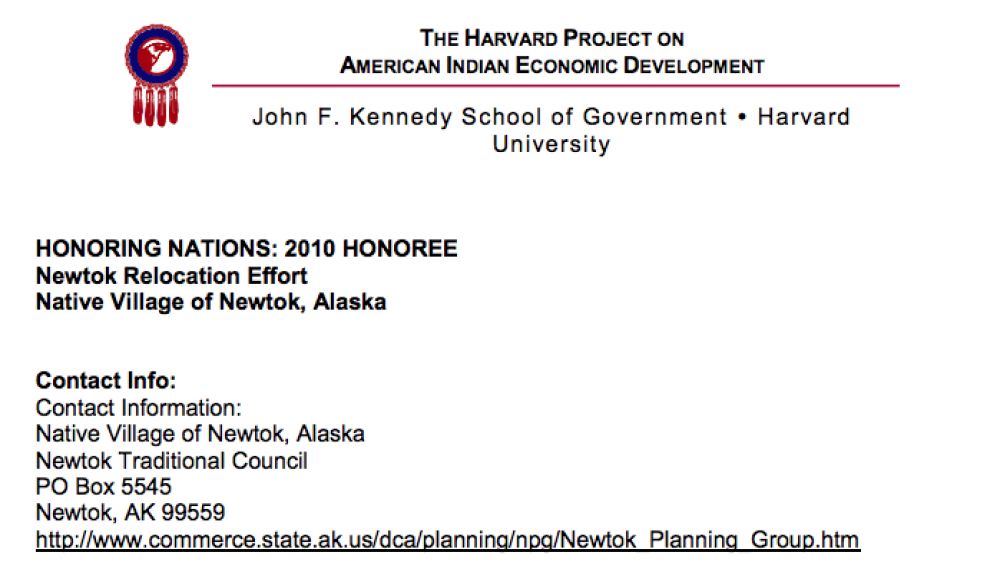
Newtok Relocation Effort
Scientists and politicians spend hours debating the facts of climate change, but in many places damaging changes to the local environment are already a reality. In the past decade, more and more human settlements have been threatened by catastrophic flooding, wildfires, or drought caused by…
